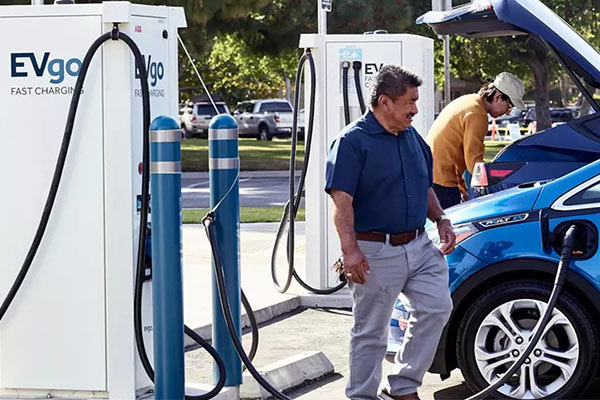News
American Infrastructure Aims To Boost EVs With Charging Stations

American Infrastructure aims to boost Electric Vehicles (EVs) with adequate Charging Stations.
There are currently 47,142 publicly accessible charging stations across the country.
Of that number, over a quarter (13,168 to be exact) of those are in California.
With the auto industry moving quickly away from internal combustion engines and electric vehicles, the demand for EVs has rapidly increased. While nearly half a million electric vehicles were purchased last year, that number only amounts to roughly 3% of the total cars purchased.
Yet despite the seemingly minuscule portion of the market that electric vehicles have captured, the industry trends are overwhelmingly positive: the sale of light-duty EV rose 85% compared to the previous year, while the sale of plug-in hybrids rose 138%.
With industry giants like Volkswagen, Volvo, and BMW phasing out traditional gasoline-dominant hybrids for the electric-dominant plug-in hybrids, the industry is looking to EV technology to pave its future.
Still, one of the most prominent issues impeding the large-scale adoption of electric vehicles in the U.S. is a lack of infrastructure. There are currently 47,142 publicly accessible charging stations across the country. Of that number, over a quarter (13,168 to be exact) of those are in California.
This means that the distribution of charging stations across the U.S. is weighted towards the West (it is important to note that according to the DOE’s Alternative Fuel Data Center, approximately 42% of EVs are registered in California).
Most electric vehicles have a battery range of 200-400 miles, which is plenty for most local trips. However, the lack of infrastructure for EVs makes traveling long distances more stressful.
Along with the lack of infrastructure, EV charging is also influenced by the type of infrastructure available. Because electric cars don’t charge with a five-minute trip to the charging station like internal combustion engines fill up on gas, the right kinds of charging available influence how quickly an EV can charge.
For example, on an overnight charge, your average home charging station that plugs into a wall outlet (known as a Level 1 charger) will return about 40-50 miles of battery. While this is helpful for making up the miles from a daily commute, this may not be sufficient for a 300 mile trip from Detroit to Chicago.
This is where public chargers come in. Public chargers are usually Level 2 or Level 3 charging stations and operate at a considerably higher rate than the Level 1 chargers.
Level 2 chargers, the most common public charging station, can charge a car in about 5 hours. The less common but considerably more powerful Level 3 charger, can charge a car in roughly an hour.
However, the reason these charging stations are not more publicly available is often due to cost. Installation costs for a Level 2 charger run anywhere between $2,000 and $5,000, and a Level 3 charger requires upwards of $100,000, which is often a difficult bill for businesses to foot.
-
READ ALSO: Russia Retaliate Against Western Sanctions, Bans Export Of Cars, Airplanes, Until end-2022
In order to increase the implementation of these charging stations, the federal government is allocating $5 billion from the $1.2 trillion Bipartisan Infrastructure Law for the development of a more extensive charging network.
The goal is to have increased the number of chargers from under 50,000 to half a million in order to prepare for the ongoing automotive shift towards electric vehicles.
“We’ve already got a lot of chargers across the country,” said Secretary of Transportation, Pete Buttigieg. “This is about accelerating that to keep up and get ahead of the increasing popularity of these EVs.”
The adoption of electric vehicles is showing no sign of stopping. With the support of new infrastructure, the threat of range anxiety will be a thing of the past, and the ability to find charging stations will be as easy as finding a gas station.
Buttigieg says, “No matter where you’re headed, you know that you will not have a problem any more than you would worry about being able to find gas when you take a trip on the interstate highway system today.”